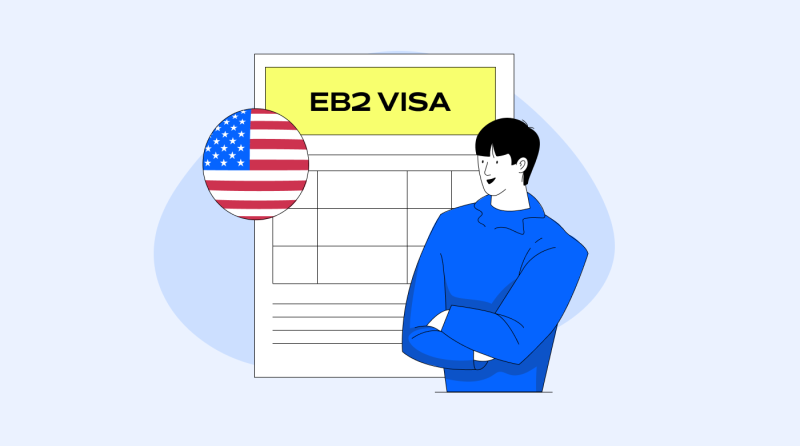
International payroll processing: providers, types, and best practices
Learn how to manage international payroll processing for your globally distributed team from Remote’s global employment experts.
Payroll processing is strategically critical
Today, companies of any size can easily hire global talent. But paying them accurately and compliantly poses a different challenge.
As well as ensuring that they are paid on time, you need to navigate the many local compliance and taxation requirements that come with hiring abroad. And if you’ve got people in multiple locations, this can get pretty overwhelming, pretty fast.
This is why it’s key to land on the right solution. Your global payroll platform shouldn’t just be an administrative tool. You need a strategic asset that allows you to hire and pay the best people globally, and avoid non-compliance with maximum efficiency.
What you'll learn
In this guide, we’ll help you identify the right type of global payroll provider for your business. We’ll also delve into some of the best practices for processing international payroll, and answer some of the most common questions from leaders responsible for managing payroll.
What is international payroll processing?
How to pay your global employees
Payroll is a general term that encompasses the various processes involved in paying your employees. These include:
Pay calculation
Benefits administration
Tax deductions and withholding
Overtime
Record-keeping
Payroll tax forms
Compliance with all relevant tax and labour laws
When you have — and pay — employees in different countries, this is global payroll.
Of course, for global companies (or companies looking to expand) these processes quickly become more complex — especially in terms of compliance and tax.
Related resource
Key considerations of international payroll processing
Let’s look at some of these processes in more detail. If you want to expand your hiring across borders, you’ll need to consider the following:
Labour and employment laws vary from country to country (and sometimes by state or province too). You’ll need to ensure that you understand what each location mandates in terms of minimum wage, paid and unpaid leave, overtime, and break allowances.
Tax laws also differ between locations, with different rates, obligations, reporting requirements, and timelines.
Salaries and wages need to be calculated correctly and promptly. In some countries, such as the US, you also need to take into account differences between salaried and hourly workers.
Employee benefits must be calculated, accounted for, and compliant with your employees’ local regulations. In some countries, certain benefits are required by law, while in others they may not be. This could include health and dental insurance, life insurance, retirement provisions, and protected PTO.
Methods and timelines of payment may differ by location. In some places, employees must be paid at least once per month, while in others they must be paid every two weeks. This can differ based on other factors, too, such as the employee’s role.
To effectively manage all these payroll processes, you need time, resources, and local expertise. And for many businesses — especially smaller ones — that isn’t a realistic option.
As a result, it’s becoming increasingly common for businesses to outsource their payroll, with 64% of companies doing so according to a 2021 study by EY.
But for international companies, what does this look like? How does it work? And what type of solution do you need?
Here are the three main services offered by global payroll processing providers:
1
Global employment services
If you don’t own a legal entity in your employee’s country, you’ll need to hire, manage, and pay them using an employer of record (EOR) — like the one offered by Remote. As the name suggests, EORs act as the legal employer, enabling you to hire workers in a given country quickly, efficiently, and compliantly. This approach is perfect for businesses that want to scale quickly and be flexible. With our EOR service, Remote manages payroll, benefits administration (including equity incentives), and day-to-day HR needs, and ensures that you are fully compliant with all relevant regulations. This allows you to focus on finding the right people and running your business.
2
Localised payroll services
If you do own a legal entity in your employee’s country, you can either manage payroll yourself internally, or outsource. Remote provides localised payroll services through our Global Payroll platform. This option is more suitable for companies that have already made significant investments in a country and plan to maintain a sizable in-country workforce. Under this approach, you remain the legal employer but Remote (or your chosen provider) handles payroll. You are responsible for complying with local legal requirements.
3
Contractor management services
When paying independent contractors, things are slightly different. Many companies default to paying international workers as contractors because it’s easier. However, if you do this, you need to be careful to avoid misclassification. This occurs when a contractor is treated like an employee, but without receiving any of the associated benefits or protections. If you are found to have misclassified contractors, you can face legal action, resulting in large fines and reputational damage. Because countries have different guidelines on who qualifies as an employee, your global payroll solution is your first defence. Remote can help ensure that you avoid misclassification, enabling you to easily convert contractors into employees and allowing you to quickly and easily manage your bona fide contractors.
Partner-dependent or owned entity?
Global payroll providers usually take one of two forms: a partner-dependent international payroll service, or an owned-entity global payroll service — like Remote.
Both types generally provide all three services mentioned (global employment, localised payroll processing, and contractor management), and can handle payroll in countries across the world.
So which one should you use?
Partner-dependent payroll providers
Partner-dependent payroll providers outsource their services to — and are reliant on — third parties in the countries they operate in.
There are a usually lot of downsides to this approach, including:
Increased costs
Hidden fees
Increased waiting times
Involvement of unknown third parties
Generally poor experience for employees
Limited IP protections
Working with a partner-dependent service may make sense in the short term, but if you’re planning to scale your growth, it’s generally advised to avoid this option.
Owned-entity payroll providers
Owned-entity providers deliver payroll, benefits, HR, and compliance services directly. They own their own entities in the countries they cover, so they do not have to outsource.
Remote is an owned-entity solution. As a result, we provide a hugely positive experience for both employers and employees, with no hidden costs, robust security, and strong IP protections.
International payroll processing: best practices
What does international payroll include?
Types of international payroll providers
What does international payroll include?
International payroll is often used as a catch-all term to describe the practice of onboarding, managing, and paying employees and contractors around the world. Depending on the person you ask, international payroll could mean something as simple as sending payments to contractors or something as complex as having another company act as the employer of record for your employees in that country.
There are three basic services offered by international payroll processing providers:
Global employment services
When you do not own an entity in the country where your employees live, you need global employment services from a partner like Remote. Global payroll providers can employ your workers on your behalf using a model commonly known as Employer of Record, or EOR. Under this model, your employees are still your employees, but the global payroll provider acts as the employer on paperwork to allow you to employ workers in the country legally. Remote fully owns local legal entities in each country where we offer our EOR services. We act as your in-country expert partner, offering global employment services including payroll management, benefits administration, intellectual property protection, and employee share options program management.
Localised payroll processing services
International payroll providers can also handle your local payroll needs in countries where you already own your own legal entities. This is a good option for companies that have already made significant investments in a country and plan to maintain a large in-country workforce. In these cases, the global payroll provider handles local payroll and benefits administration but does not employ the workers on your behalf. You are responsible for your own in-country legal obligations and intellectual property protection where you have your own local legal entity.
Contractor payment services
In cases where your company needs to work with someone in another country but does not wish to make that person a full employee, an international payroll processing partner can help you pay contractors in other countries. For short-term arrangements and deals with individuals who prefer to remain self-employed, this can be a good option. That said, companies must be cautious to avoid fines and penalties, not to mention accidental loss of intellectual property depending on the laws where the contractor lives.Because countries have different guidelines on who qualifies as an employee, your global payroll solution acts as your first line of defence against worker misclassification. Many companies default to paying international workers as contractors because it’s easier. However, doing so can expose the company to potential lawsuits if the contractor decides to claim an employment relationship. Sometimes, companies may use different methods in different countries. For example, a company could employ workers through a global employment solutions provider in one country, use that provider’s local payroll services in another country where the company owns an entity, and use the same provider to pay contractors all over the world. Your global payroll provider can help you work out the right mix of services for your situation.
Types of international payroll providers
Global payroll providers usually take one of two forms: a partner-dependent global payroll service or an owned-entity global payroll service (like Remote).Both types of providers can handle payroll for companies in countries around the world. Both types also generally provide all three of the service types outlined in the previous section. However, only some providers own their own local entities, while others rely on third parties within their covered countries to provide their services for them.
Partner-dependent global employment solutions providers
Partner-dependent global employment solutions providers outsource their services to third parties within the different countries where they operate. Working with a partner-dependent service may make sense in the short term, but limited intellectual property protections and a generally poor experience for employees managed by partner-dependent providers (not to mention excessive costs) limit the utility of this option in most cases. Whenever possible, avoid this option.
Owned-entity global employment solutions providers
Owned-entity global employment solutions services provide full payroll, benefits, compliance, and tax services for employers hiring in foreign countries. Unlike partner-dependent services, owned-entity providers own their own entities in the countries they cover, so they do not have to outsource. This model provides stronger protections for IP and invention rights, as well as a significantly improved experience for employees.
Extra payroll management research
The easy, compliant way to manage global payroll processing
If you are planning to grow your workforce, a reliable international payroll solution can be an absolute game-changer.
No matter how big your business is or what your expansion goals are, Remote can carry you through the pitfalls and ever-changing complexities of global payroll. Our integrated, all-in-one platform calculates and runs your payroll accurately, compliantly, and quickly, saving you time and resources — and taking a huge weight off your plate.
To learn more about how we can make global payroll easy, schedule a call with one of our experts — or book a demo today.
Global payroll information for specific countries
These are a few of our most-viewed countries. Visit our Country Explorer to learn more about global payroll for specific countries.
International payroll processing FAQs
Want to know more about international payroll management? Here are some of the most commonly asked questions:
You can compensate workers in multiple countries by using a global payroll service such as an EOR or PEO. A PEO requires your company to own an entity in the country where you hire. An EOR hires employees on your behalf, so you don’t need an entity.
Paying workers in multiple countries is as easy as paying workers in one country, provided you use the right tools. Remote allows companies to pay and manage employees in dozens of countries all over the world.
In general, payroll calculation involves allocating salaries, withholding, and benefits. With global payroll, employers must do this while also complying with the tax, employment, and labour laws of every country where they have employees.
Unsurprisingly, this can be a complex process. To ensure you are calculating your payroll correctly and compliantly, you can either hire internal specialists for each country, outsource to local third parties — or use a centralised global payroll platform, like Remote.
The amount you pay your international employees depends on your company’s budget and model. Some companies opt to pay a single rate regardless of location, while others base salaries on geo ranges, local market rates, and costs of living.
For example, imagine you’re advertising for a role that, in London, would pay £80,000 per year. Some companies may use that as a baseline and offer it to the successful candidate, no matter where in the world they live.
Conversely, other companies may adjust that £80,000 to the candidate’s local market, taking geo ranges, local expectations, and local rates into account.
The approach you take is up to you. To ensure your offers are competitive, do your research — and look closely at the kinds of benefits you’ll need to offer. Remote can help you understand local pay ranges and tailor competitive benefits packages to local markets.
Something I hadn't anticipated but really appreciated was Remote's benefits offering. This enabled us to work out what someone in California would expect, and how much it would cost us as a business. In the end we were able to make a really great and professional offer to our prospective employee, whereas without Remote we'd have no idea what was expected or appropriate.
Ed Nutter, CEO of Midspace (formerly Clowdr)
When it comes to compliance, taxes, and employment, are your international employees governed by the laws of their country — or the laws of yours?
In general, your company should fully comply with the laws of the country where your business is headquartered.
However, when hiring talent in other countries, you must adhere to the laws and regulations in those jurisdictions. For example, if you’re based in Australia and you hire an employee in Germany, you must provide the relevant PTO, make the relevant contributions (such as social security employer contributions), and adhere to the employment conditions as laid out under German law.
Sometimes, you may have additional responsibilities, depending on where you’re based. For instance, if your business is based in the US and you hire contractors in other countries, you will need to submit certain tax forms — such as W-8 BEN — to the Internal Revenue Service (IRS).
Remote can help you understand your compliance obligations in different countries, and help ensure that you meet them.
With employment laws and regulations varying from country to country, we don’t have time to go through the bureaucratic and time-consuming process of setting up a new legal entity every time we make a new hire. Remote allows us to effortlessly onboard new employees, safe in the knowledge that we are fully compliant. We are free to select the best candidates available, enabling us to focus on growing our business.
Andy Firth, Finance and Operations at Nearcut
Generally, US-based companies cannot legally make direct payments to overseas employees (note that this is not the case for independent contractors).
As mentioned, you will either need to pay your international employees through your own legal entities in those countries, or through a global payroll service.
If your business is based in the US and you want to understand what your options are, our friendly experts can explain everything in detail.









